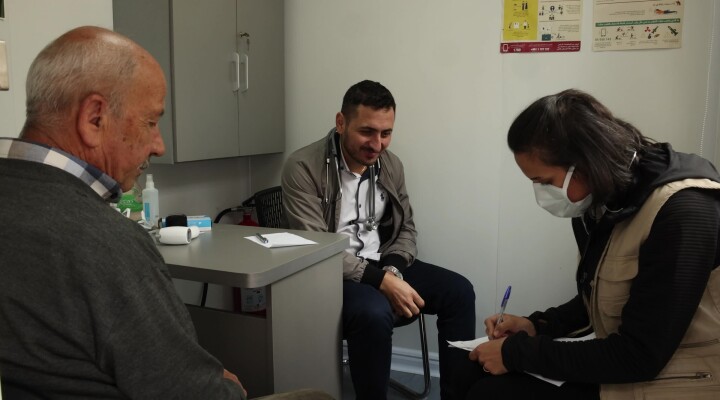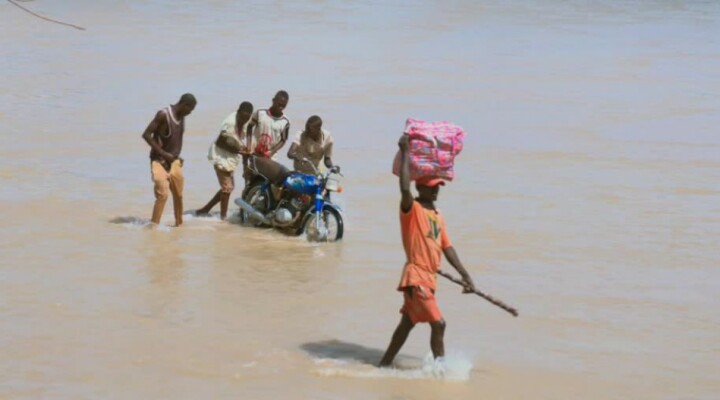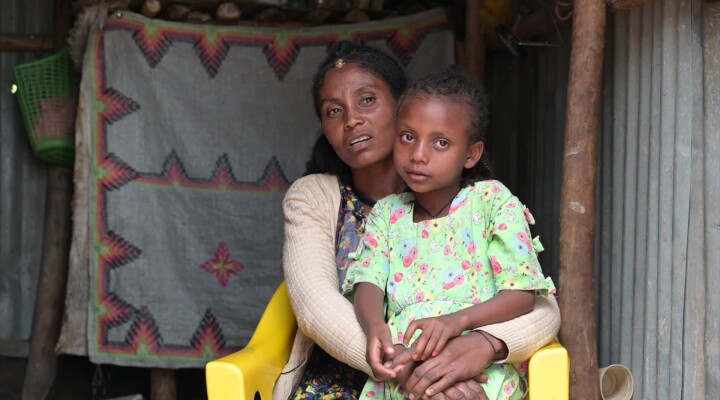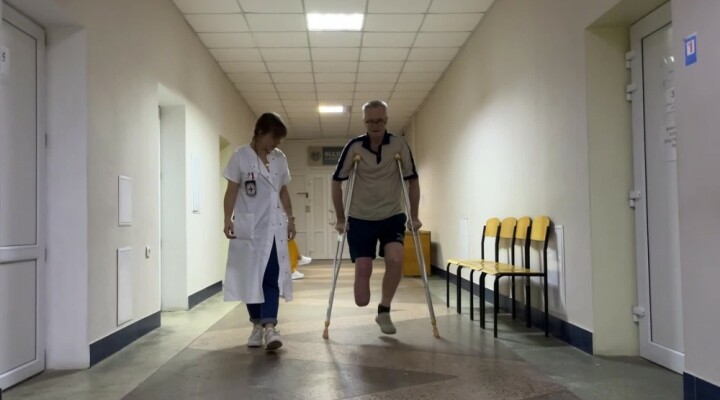Heath care destroyed in western Cote d'Ivoire
Entire villages have been destroyed and health-care centres looted in western Côte d'Ivoire. As an uneasy calm settles, thousands of refugees and internally displaced people want to return home yet there is little to return to.
Raymond Zanhan is assistant to the traditional chief of Blolequin - a town halfway along the Toulepleu-Guiglo road where much of the clashes happened. Zanhan saw his town change hands three times during the fighting in April and May this year. At a certain point, he decided to flee.
"When I came back from hiding and I got here, I was disgusted. Everything was gone," he states.
Clinics and hospitals are in ruins. Health-care workers who were providing essential care for more than 100,000 people in the area have abandoned their posts in fear. Zanhan estimates only 1 in 10 people have returned so far to try and rebuild their lives. He believes as long as there are no health services, people will be reluctant to come home.
"Medication, everything had been taken. No more staff. The population continues to suffer," says Zanhan. "Without health care, we can't do anything."
A few kilometers away in the village of Zeaglo, the destruction is even more shocking. Here, fighters took over the local clinic and, when other fighters came, they waged their battle from the clinic. The building is not only bereft of all medicines and medical supplies, it is pockmarked with blasts and bullet holes.
RénéKouiGueï is from this town of Zeaglo. He is a retiree with a prostate infection and relies on a catheter. When fighting broke out, he hid for 18 days in the bush. When he came back, he found not only had his house been pillaged and burnt to the ground but the local clinic that he depended on had been destroyed.
"When I returned, I was lucky that the Red Cross was there. I was terribly sick. The ring of the catheter, where the urine goes in, was broken," Gueï explains. With the help of an ICRC mobile clinic, Gueï is able to have his catheter changed weekly.
During the acute phase of the conflict and the ensuing chaos, the ICRC and the Ivorian Red Cross set up health posts and ambulance services. Now there are seven mobile clinics in Côte d'Ivoire set up by the Ivorian Red Cross and the ICRC. they have conducted over 16'000 consultations since the beginning of the year and for thousands, these mobile clinics are still the only source of medical care.
BarthelemySaouré, ICRC field officer in Guiglo says:
"These mobile clinics are the only effective medical treatment available along the Guiglo-Blolequin corridor."
All but one state hospital in the western Cote D'Ivoire have been destroyed, looted and or abandoned by their personnel.
Beyond Cote d'Ivoire, attacks on health-care workers and medical facilities in conflicts and violent upheavals across the world are affecting millions according to a new report by the International Committee of the Red Cross (ICRC). The human cost is enormous as whole communities are left without health care.
23 year old Norbertine Flye nearly died as she fled fighting three times while 9 months pregnant with twins. At one point, the weight of her twins made it hard for her to breathe and she started feeling light headed. Her sister flagged down a passing ICRC ambulance - this saved Flye's life.
ICRC Doctor Bonaventure Bazirutwabo explains: "The medical term for what she was experiencing is gestational toxicosis. This is a very dangerous condition for both the mother and the baby. If there isn't immediate care, the result is often the death of both the mother and the child."
Flye was evacuated to Gagnoa hospital, where she gave birth to two healthy boys, Jean-Marc and Jean-Luc. Flye continues to receive weekly checkups when the ICRC mobile clinic comes to her village.
According to International law, the wounded and sick in armed conflict have the right to medical assistance. The neutral status of health-care facilities, transport and personnel must be respected by all parties in a conflict. Any deliberate assault violates these laws.
SHOTLIST AND B-ROLL AVAILABLE TO PREVIEW AND DOWNLOAD



